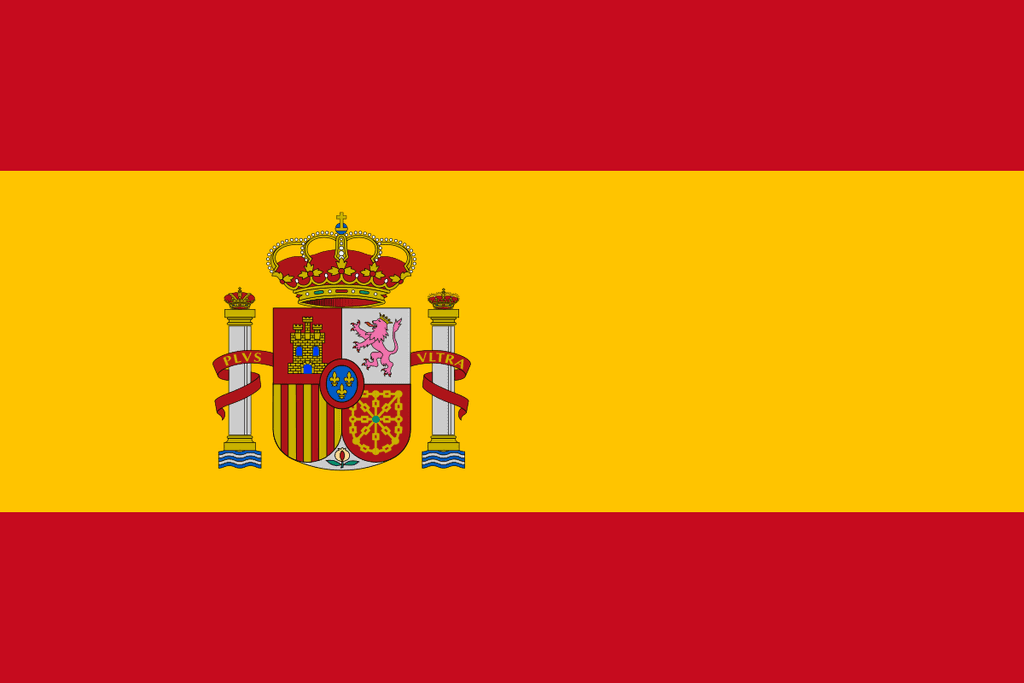

Smallholder farmers in Southeast Asia play an important role in the global supply chains of palm oil, rubber, coffee, and cocoa. These crops generate livelihoods for an estimated 100 million smallholders. However, smallholders are often marginalized within global supply chains - excluded from decision-making processes and cut off from the increasing demand for sustainable products. Understanding their roles, needs, and challenges is paramount for building sustainable and fair commodity systems.
As stewards of local biodiversity and natural resources, smallholder farming practices can directly impact deforestation rates, soil health, and water quality. Alongside cash crops, many grow food for local consumption, supporting regional food security and nutritional diversity. However, they face persistent challenges - from price volatility and climate shocks to limited access to finance, technology, and markets.
The increasing demand for sustainable sourcing and the growing importance of data that tracks and verifies claims means “first-mile” sustainability data - the information collected at the origin of a supply chain - can transform smallholder livelihoods and boost incomes.
With multiple intermediaries and informal trade networks, it’s hard to trace where products come from - or reward the farmers who grow them sustainably. Market-based mechanisms that capture this data can promote environmental goals and open new income streams for farmers.

The First Mile Challenge in Southeast Asia
The “first mile” of commodity supply chains is often the most opaque and underdeveloped. In Southeast Asia, it’s common for cocoa to be grown on fragmented farms, rubber and coffee to pass through informal trading networks, and palm oil smallholders to supply mills without formal recognition. These intermediated and unofficial systems, which often lack digital records and include multiple transactions, make it hard to trace products back to their source, and even harder to reward farmers for sustainable practices.
This complexity reinforces income insecurity. Many smallholders do not earn a living income, lack access to reliable market information, and have little negotiating power. They are left out of programs offering price premiums or environmental incentives without visibility. Addressing this gap is essential for sustainable development in the region.
Sustainability Data for Income Generation: Potential Mechanisms
Carbon and Biodiversity Credits
Carbon credits represent reductions in greenhouse gas emissions. Biodiversity credits reflect the conservation of natural ecosystems. Both can be earned through sustainable farming practices.
Sustainability data helps quantify and monetize ecosystem services, allowing smallholders to generate carbon credits and biodiversity offsets through agroforestry, reforestation, or conservation farming. These credits can be traded or sold to companies seeking to meet net-zero and nature-positive goals in compliance and voluntary carbon markets.
Compliance markets are caps on emissions regulated and managed by various authorities, such as the European Union’s Emissions Trading System and California’s Cap-and-Trade program. If companies cannot reduce their emissions to meet those caps, they can purchase permits to emit a certain level of greenhouse gases. Scaling up these programs to address climate change is challenging, making voluntary carbon markets a viable alternative.
Voluntary carbon markets (VCMs) allow companies and individuals to voluntarily purchase carbon credits and offset their carbon emissions. They are not regulated like compliance carbon markets. This sector is improving frameworks, guidelines, and processes to increase their integrity and generate high-quality carbon credits.
Why It Matters
Higher prices and profits translate to improved livelihoods. Solidaridad states, “Small-scale farmers who implement low-carbon and deforestation-free practices are well-positioned to benefit from carbon markets, which could help them increase their climate resilience and generate additional income. Carbon markets provide an important vehicle for compensating or incentivizing farmers who provide vital ecosystem services, such as sequestering greenhouse gases or using sustainable farming practices.”
Innovative aggregation models, like Rabobank’s ACORN platform, help smallholders transition to agroforestry practices. The program uses LiDAR and satellites to monitor and verify if biomass is increasing and issues transparent and traceable carbon removal units which are sold to responsible companies. 80% of the revenue is returned to farmers.

Other standards, such as Verra’s Verified Carbon Standard, the Gold Standard, and Plan Vivo, provide methodologies for project certification. However, accessing these markets may be out of reach for individual smallholders due to verification and project management costs. Findings from two Maastricht University case studies “reveal that while the VCM offers new income streams and encourages climate-smart agricultural practices, barriers such as certification costs, governance challenges, and delayed payments remain significant hurdles for smallholder participation.”
Sustainable Supply Chain Premiums
Verified sustainability practices - such as deforestation-free production, reduced pesticide use, and decent labour standards - can unlock price premiums from buyers. For example, Fairtrade certification provides premiums to producers who meet certain social and environmental standards. Other certifications, such as the Roundtable on Sustainable Palm Oil (RSPO) and the Rainforest Alliance (UTZ), require verifiable sustainability data to back claims and trace product origins.
Organizations like International Sustainability and Carbon Certification (ISCC), FoodChain ID, Forest Stewardship Council (FSC), Sustainable Forestry Initiative (SFI), International Institute for Sustainable Development (IISD), and Programme for the Endorsement of Forest Certification (PEFC) verify responsible sourcing, traceability, and deforestation-free practices across multiple sectors.
Why it Matters
The results of a systematic review and meta-analysis of the effects of sustainability standards on smallholder farmers published in Science Direct “suggest that certified farmers receive about 20–30% higher prices than their non-certified colleagues. Effects of standards on production costs and yields are mixed and vary across standards. On average, certified farmers gain higher profits, leading to an overall increase in household incomes by about 16–22%. These results are largely in line and complement findings from previous, related meta-analyses (DeFries et al., 2017; Oya et al., 2018).”

Payments for Ecosystem Services (PES)
Payment for Ecosystem Services (PES) programs can incentivize smallholder farmers to maintain or restore essential ecosystem functions like water purification, watershed protection, carbon sequestration, soil health, and biodiversity conservation by managing their land in ways that provide these services.
For example, if a farmer protects a stream running through their land, a downstream water company or local government may pay them to keep that water clean. That’s PES in action.
These programs are becoming increasingly important in the tropical landscapes of Southeast Asia, where agriculture intersects with sensitive forest ecosystems. However, scaling these mechanisms requires standardized data collection and trusted intermediaries to validate and process payments.
Some examples of PES
The Landbanking Group measures and tracks water, soil, biodiversity, and carbon to create “Nature Equity.” This is a transferable, bankable asset that businesses can invest in that rewards land stewards for improving nature.
The World Wildlife Fund established a PES fund to “reward the maintenance, improvement or adoption of conservation-friendly land uses” in the Danube Basin.
UNFAO PES In The Ruvu Watershed Of The Uluguru Mountains, Tanzania
Global Environment Facility supports over 55 programs worldwide
Technology-Enabled Traceability and Transparency
Digital tools are reshaping what’s possible at the first mile. From blockchain-based traceability platforms to mobile data collection apps, technology allows for more accurate, real-time farm data. These innovations enhance transparency and trust throughout the supply chain.
Platforms like Orijin, Koltiva, Sourcemap, Satelligence, and Fairtrace help bridge this data gap by enabling secure data collection and sharing between farmers, cooperatives, and buyers. This transparency empowers farmers to prove compliance and earn the premiums they deserve.

Salla Mankinen, CEO of Orijin, notes, “Our smallholder partners benefit from first-mile traceability that proves no deforestation, demonstrates their commitment to sustainable practices, enables buyers to verify the chain of custody, and complies with EUDR and related regulations.”

For instance, ECOSHIFT enables verified supply chain and sustainability data to be shared with downstream buyers, allowing smallholders to access premium markets and direct trade relationships. When buyers can verify claims at the source, they are more likely to offer long-term contracts and better pricing. Consumers can also review the supply chain by scanning a QR code on select products.
These mechanisms are beginning to take root in Southeast Asia, with various initiatives demonstrating the potential for positive impact.
Real-World Impact: Sustainability Data in Action
Indonesia
Cocoa Sustainability Partnership supports traceability and farmer training, helping improve incomes while reducing deforestation in cocoa landscapes.
Rubber traceability using blockchain, like Project Tree Natural Rubber’s proprietary traceability system, enables tracking and inspecting the entire supply chain. Their goal is to “bring added value to the supply chain, which in turn will benefit our suppliers in various ways.”
Related initiatives like the Global Platform for Sustainable Natural Rubber help build capacity and verifiable sustainability claims, ensuring the “supply chain adheres to the highest sustainability principles across all operations.”
Malaysia
Wild Asia Group Scheme (WAGS) in Malaysia trains independent palm oil smallholders who commit to zero deforestation. It provides capacity building to achieve certification and access better markets, using digital tools for sustainability reporting, allowing suppliers to trace the product's origins back to their farms.
Philippines
The Mindanao region contributes to more than 80% of the cacao production, and 90% comes from smallholder farmers. The Regional Initiative for Investment in Sustainable Agriculture (RIISA) focuses on mobilizing ESG (Environment, Social, and Governance) investments in the Philippines' cocoa sector to support small and medium enterprises and financial intermediaries.
Thailand
Chulalongkorn University’s Innovation Center for Research and Development of Sustainable Thai Cocoa (ISTC) provides farmers with knowledge about cocoa cultivation, harvesting, and fermentation. The center promotes local cocoa-processing businesses, emphasizing the potential of Thai cocoa and its unique aroma and flavour.
Vietnam
Verification and certification of more than 4600 coffee farmers in Dak Lak, Central Highlands Region, who implemented sustainability criteria for more responsible coffee production set by the 4C Code of Conduct, contributed to improved production methods and better farmer livelihoods. This included reducing water consumption and fertilizer usage, introducing gender equality initiatives and intercropping techniques.
Helvetas project transitioning the cocoa sector to a regenerative and circular economy business model, leading to equitable growth and reducing harmful environmental impacts.
Challenges and Barriers to Implementation
Despite their promise, sustainability data systems face real-world challenges. Addressing these will be critical for success.
Data Collection and Verification
Ensuring data accuracy from dispersed, low-tech farms is complex. Monitoring, Reporting, and Verification (MRV) systems must be tailored to smallholders’ realities and cost constraints.
Technology Adoption and Infrastructure
Digital literacy and internet access remain barriers in many rural areas. Programs must invest in both hardware and training.
Market Access and Power Imbalances
Without safeguards, most value from sustainable premiums or credits could be captured by intermediaries. Transparent contracts and farmer representation are essential.
Land Tenure and Rights
Insecure or informal land titles can exclude farmers from PES schemes or carbon markets that require clear ownership for credit issuance.
Capacity Building
Long-term support, including agronomic training and business skills, is necessary for farmers to adopt and benefit from sustainable practices.
The Way Forward: Embracing Potential Solutions

To unlock the full potential of sustainability data for income generation, we must recognize the opportunity. Sustainability data is not only a compliance tool—it’s an asset that can empower smallholders economically. Overcoming barriers requires patient, place-based approaches tailored to local realities.
Governments, NGOs, private sector actors, and farmer organizations must work together to design inclusive and scalable mechanisms and invest in infrastructure. From digital platforms to agronomic extension, enabling environments are critical to success.
Transparent pricing and fair contracts that champion fairness must be central to new models.
Southeast Asia’s smallholder farmers are central to the world’s cocoa, palm oil, and rubber supply chains. Investing in first-mile data systems can produce sustainability-linked income streams that reward environmental stewardship and improve rural livelihoods.
The path forward is not without challenges, but the potential rewards - for farmers, ecosystems, and supply chain resilience - are immense. With the right partnerships and policies, sustainability data can become a powerful driver of equity and opportunity in Southeast Asia’s agricultural heartlands.
Whether you’re a policymaker, buyer, or consumer, supporting sustainable sourcing means investing in the people who grow the world’s essential commodities - starting at the first mile.
By Tim Morch



